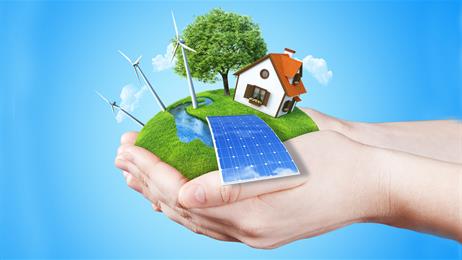
We need a global climate agreement


COP21 is approaching rapidly. On 30 November, the world's nations will meet in Paris to reach a global climate agreement. And it is needed. With the current emissions, UN's Intergovernmental Panel on Climate Change expects that global warming will reach two degrees even before 2040.
The majority of the world's energy supply is still based on fossil fuels. More than 80 per cent originate from coal, oil and gas. Five per cent originate from nuclear power and only just under 4 per cent originate from the modern, sustainable energy sources, such as hydro power, wind, solar and biomass, hydro power constituting 2.4 per cent. If we are to slow down global warming, we must reduce our use of fossil fuels.
The energy sector accounts for approximately one-third of the global CO2 emissions and is consequently the largest single contributor to the global CO2 emissions. Therefore, we have a major responsibility in the sector. But how far along are we when it comes to the conversion of our energy systems?
At a global level, approximately five per cent of the electricity supply is based on renewable energy. In Europe, the figure is 13 per cent and it is expected to reach 26 per cent in 2030. If we look at Denmark's electricity supply, approximately 50 per cent originate from renewable energy, and this figure will increase in the coming years. Since 1990, Denmark has reduced its CO2 emissions from the electricity supply system by approximately 40 per cent. This is more than any other country in Europe.
There is no doubt that we have come a long way in the energy conversion - both in Denmark and at European level. Worldwide, we now know which renewable energy solutions are necessary to convert the global energy systems. It is first and foremost wind power, hydro power and solar power. Now, we need a framework that can create certainty about the green conversion. A global climate agreement will contribute to ensuring just that.
For example, it must be more expensive to emit CO2. With the current expectations to the price of CO2 emissions, the price of electricity from gas- and coal-fired power stations will be approximately DKK 0.60 per kWh. If the price of CO2 increases to DKK 200, corresponding to the level that was expected when the European quota trading system was designed, the price of electricity based on fossil fuels will rise to approximately DKK 0.75 per kWh.
In comparison, the price of electricity based on offshore wind power currently ranges from DKK 0.85 to 0.90 per kWh, and we expect that the price will be reduced to DKK 0.70-0.75 per kWh in 2023 as the technological development progresses and processes are streamlined, making offshore wind power competitive compared to fossil fuels, just as it is the case for onshore wind power today, and which is almost the case for biomass used in large CHP plants.
This means that both costs and the need for subsidies for renewable energy solutions will decline. From 2010-2015, the need for subsidies for offshore wind power was reduced by 30 per cent, and it will continue to decline.
The renewable energy solutions are in place and ready to replace many of the fossil fuel solutions. But the price needs to be reduced, and it must be more expensive to pollute. In DONG Energy, we see three primary solutions to creating a greener energy production: 1) We have to base the energy system on a core of renewable energy sources, such as wind, hydro and solar power; 2) we need power stations based on biomass, biogas and waste as a supplement; 3) we have to build an even stronger transmission grid between the European countries so that we get a less restricted energy market.
In DONG Energy, we hope that the outcome of COP21 will be some real results which can help push the development in the right direction. The climate needs a global agreement supporting the positive conversion of our energy systems and creating certainty about the green conversion.